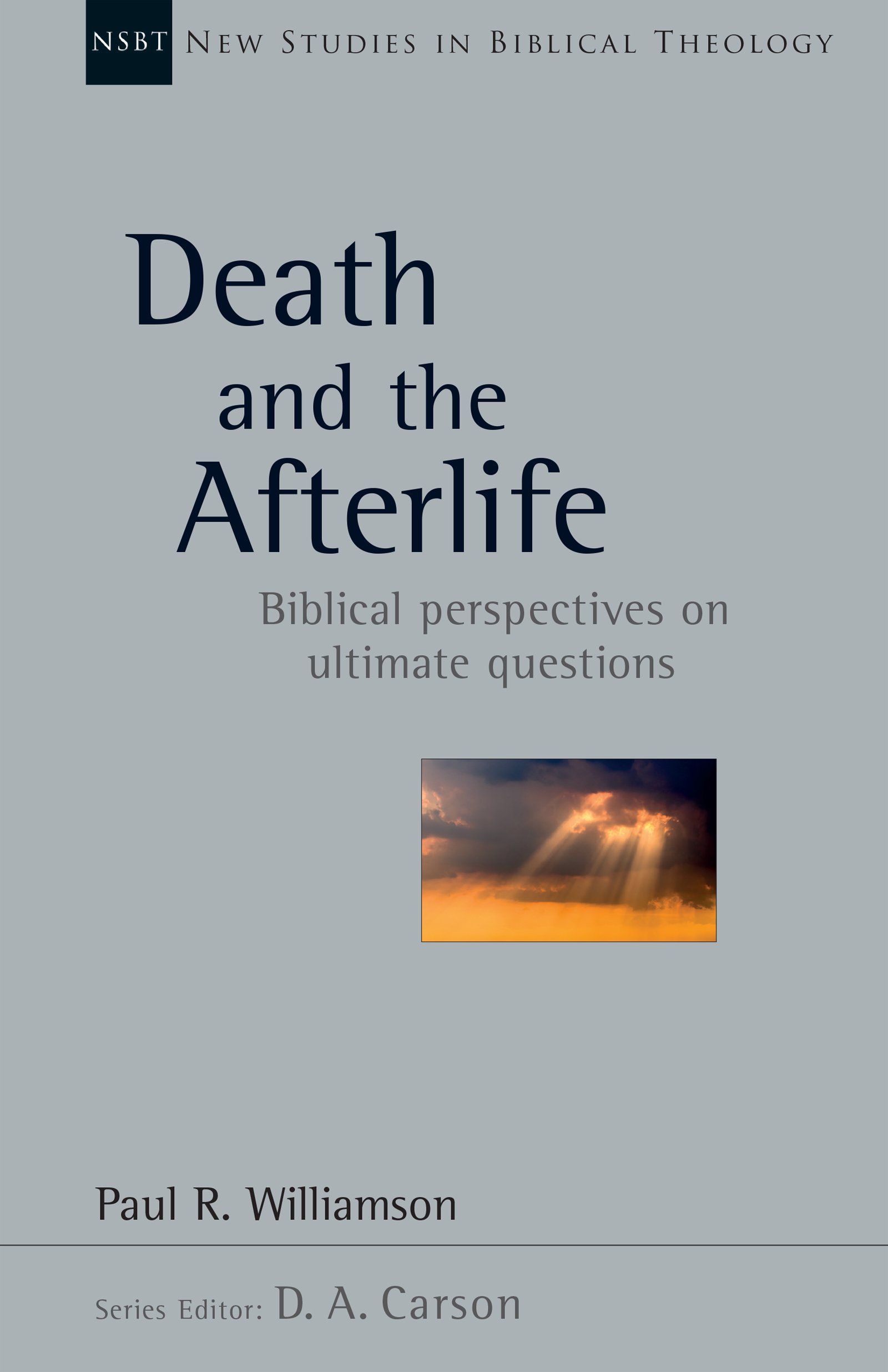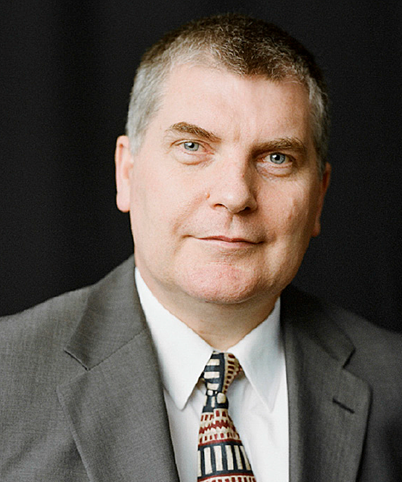It’s a subject that captivates our curiosity at least once and a while, and there are not many subjects more important. So just what does the Bible have to say about death and the afterlife?
I’m Fred Zaspel, editor here at Books At a Glance, and that’s our topic today. We’re talking to Dr. Paul Williamson of Moore College in Sydney, Australia, and author of the new book, Death and the Afterlife: Biblical Perspectives on Ultimate Questions.
Paul, welcome – great to have you with us.
Williamson:
Happy to be here.
Fred Zaspel:
Alright, first off, give us an overview of your book. What are the topics you take up in your six chapters? And perhaps you could distinguish for us what is meant by the intermediate state and the final state.
Williamson:
The book focuses on personal eschatology – that is to say, what happens once we die and what lies beyond the grave. The first chapter considers death and the afterlife from both a modern and ancient perspective, before sketching out the traditional understanding of the biblical perspective, and issues of increasing debate among contemporary evangelicals, such as the idea of an intermediate state, an instantaneous resurrection, the rationale for the final judgment, the nature of hell, and the prospect of an all-inclusive heaven. These controversial matters are then examined in the following chapters, and assessed in the light of Scripture.
As far as the difference between the intermediate and final state is concerned, the intermediate state refers to the period between our death and final judgment, whereas the final state refers to our situation after that final judgment – where we will spend eternity.
Zaspel:
What is the contribution you hope to make with your book?
Williamson:
I hope to show that there is solid exegetical support for the traditional evangelical understanding of personal eschatology. While some popular notions such as having a personal mansion in the wild blue yonder do not align with the teaching of Scripture, this is also true of alternative ideas that are increasingly being promoted in evangelical circles today. So I guess my main goal is to encourage people to examine what Scripture has to say, and in the light of that, to reflect carefully on their own ideas and those of others on these debated issues of personal eschatology.
Zaspel:
You acknowledge in your Introduction that there are other books on the biblical teaching regarding death and the afterlife, but you point out that in recent years some of the questions and dialogue partners have changed. Explain that for us. What are the current points of controversy, and where are the objections to traditional Christian teaching coming from?
Williamson:
Okay, the area of study that first got me interested in this topic was the fact that some Evangelicals today don’t believe that we have a soul, and therefore there is really no need for intermediate state. I always believed that there is an intermediate state, and obviously if humans don’t have a soul then there is no part of them that would survive death. That was one of the key considerations that got me thinking about this subject.
But after I explored further I was aware that, for example, quite a number of evangelicals have moved away from the idea of eternal conscious punishment, the idea of hell, and moved to a teaching of annihilation. So I explore that topic in detail.
But then the more I read the more I realized that some Evangelicals are arguing that everyone ends up going to heaven, even the devil, so that’s what prompted me to see if there is any biblical justification for such a novel idea.
The more I read the more I also realized that not all Evangelicals believe the same thing about personal resurrection – some thinking that when we die we have instantaneous resurrection and we go to be with the Lord straightaway. Everybody goes to the grave and is never resurrected as such.
Zaspel:
Just in broad terms, how does the biblical view of the afterlife differ from that of others in the ancient world? And does that become a point of issue with the biblical writers themselves?
Williamson:
Taken as a whole, the biblical view is much more positive. While the OT does not say much – OT authors seem more concerned with living faithfully under the blessing of God in the present life – nevertheless there are a few hints that death is not the end of our human existence, and this comes out most clearly in Daniel 12:2, which plainly speaks of a physical resurrection of both the righteous and the wicked. This is unpacked in the NT. Jesus brought this hope of eschatological resurrection into the present and held out the prospect of eternal life for all who would embrace the kingdom of God and put their trust in Him.
Admittedly there is a dark side to the biblical perspective – the prospect of judgment and punishment for those who reject the good news that Jesus proclaimed. But even this more negative message is framed with a message of hope – everyone can avoid this awful prospect of divine condemnation if they repent and put their faith in the Lord Jesus Christ, the firstfruits of those who will rise on the last day.
There’s really nothing like this in the ancient world – most of which entertained no hope of resurrection, and would have dismissed such an idea as illogical, impossible, or both. Not surprisingly, the biblical writers clearly take issue with the latter. For instance, with reference to our resurrection hope, the Apostle Paul makes it clear that ‘if for this life only, we have hope in Christ, we are of all people, most to be pitied’ (1 Cor 15:19). Clearly some of the Corinthians were adopting a more Platonic understanding of the afterlife, so Paul is at pains to point out the importance and the reality of the Christian hope of physical resurrection from the dead, and the prospect of an embodied experience in the life to come.
Zaspel:
What are Sheol and Hades? And who goes there?
Williamson:
Sheol is the key Hebrew term used to depict the realm of the dead. Hades is the Greek equivalent. So in one sense, these two words both refer to the same reality – the underworld, the place to which one’s spirit goes once they die. There is some debate over who goes there, at least as far as the OT is concerned; most understand that everyone was believed to go to Sheol when they died, with no distinction between the righteous and the wicked. By the intertestamental period, however, Sheol or Hades was thought to contain separate zones or compartments, with the righteous and wicked dead being consigned accordingly. So while arguably not originally associated with post-mortem punishment, by the time of the New Testament it seems that hades was thought of in precisely that manner, ‘paradise’ being reserved for the righteous dead (as suggested, e.g., by the parable of the rich man and Lazarus in Luke 16).
Zaspel:
In each of your chapters you develop the biblical teaching from Old Testament to New Testament. In what significant ways does the teaching of the New Testament mark an advance over that of the Old Testament?
Williamson:
Well, the more significant advances would certainly be the much clearer teaching on the hope of resurrection, the idea of a final, universal judgment, and the very clear demarcation between the post-mortem and final prospects of the righteous and the wicked.
Zaspel:
What is the biblical rationale for the resurrection? Why is it important?
Williamson:
As Creator, God is the one who gave us life. That perfect life was disrupted by human rebellion and its consequence – the death that came on all of us through Adam. God must therefore defeat sin and death, and he did so through Jesus, who ‘shared in our humanity so that by his death he might break the power of him who holds the power of death – that is the devil – and free those who all their lives were held in slavery by their fear of death’ (Heb 2:14–15). By raising Jesus from the dead, God proclaimed victory over sin, and death, and the devil – and we can all share in this victory through being united to Christ by faith. The resurrection of Jesus is the proclamation of God’s victory now, and it is the guarantee that God’s ultimate victory will be made manifest on the Last Day, when death, the last enemy, will be destroyed, and we will be with the Lord forever. So the biblical doctrine of resurrection is extremely important, because it proclaims that God has defeated sin and death, and makes it clear that God’s purpose in creation has not and will not be ultimately thwarted by either sin or the devil.
Zaspel:
Is hell forever?
Williamson:
Well, in the final chapters of the book I examine both the nature of hell and the hope of heaven. In contemporary discussion, these two issues are closely connected, with some suggesting that the biblical prospect of hell is really annihilation and, thus ‘forever’ in the sense that those consigned to hell will be terminated and simply cease to exist. Still others suggest that hell is a terrifying reality but merely temporal; all those consigned to hell will eventually repent and be reconciled to God through Christ. I maintain that both these views are fundamentally flawed; it’s difficult to get around the plain meaning of some NT texts that suggest that hell is a place of eternal, conscious punishment, and that it is no way out; it is without any exits. So yes, the biblical testimony suggests that hell is indeed forever – a prospect that people should avoid at all costs. And God has provided the only way of doing so – which is repenting and trusting in Jesus now, in the present life, before it is forever too late.
Zaspel:
What will the final state be like for the redeemed?
Williamson:
This is a much more pleasant concept, although it’s difficult to describe in detail. What we can say for sure is that it will be joyous and delightful experience; we will enjoy perfect harmony and communion with God, and there will be nothing to disrupt or spoil our enjoyment of the blessings that God has created and stored up for us. Everything bad and unpleasant in our present experience of life will be eradicated, and all that disrupts our relationship and fellowship with God will be completely absent, for the new heaven and the new earth will be a perfect home of righteousness where the Prince of peace will reign unrivalled and unchallenged. It is beyond our human imagination to fathom this eternal reality fully, but Christians enjoy a foretaste of it in the present life. Through Jesus we have been brought into God’s kingdom, we have received eternal life, and so in a real sense Christians enjoy ‘the future now’, while knowing that the best is yet to come.
Zaspel:
We’re talking to Dr. Paul Williamson of Moore College in Sydney, Australia, and author of the new book, Death and the Afterlife. It’s an excellent addition to the NSBT series from IVP, and we are happy to commend it. If you are teaching or preaching on these themes, this is a resource you will not want to be without.
Paul, thanks so much for your good work, and thanks for talking to us today.
Williamson:
My pleasure – happy indeed.
Buy the books

Death and the Afterlife: Biblical Perspectives on Ultimate Questions
